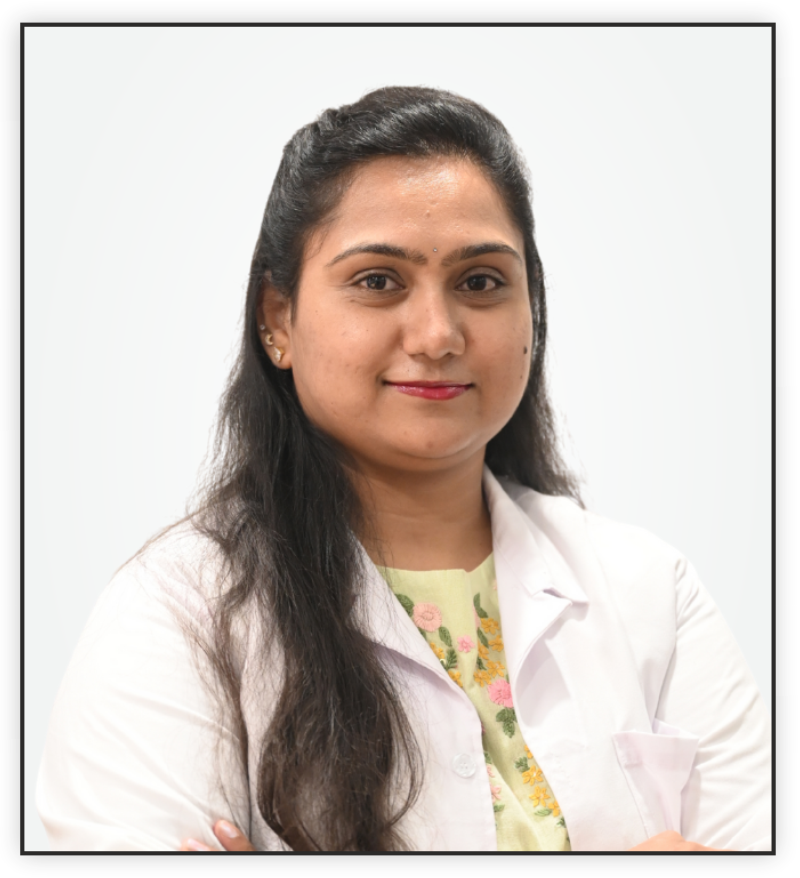 Department of Pulmonology
Department of Pulmonology
Best Pulmonology Hospital in Hyderabad
The Department of Pulmonology at Prathima Hospitals is the Best Pulmonology Hospital in Hyderabad, the department focuses on the diagnosis and management of disorders relating to the respiratory system, including the lungs, upper airways, thoracic cavity and chest wall.
The Pulmonology Department has medical professionals with medical expertise in the field of Pulmonology and Bronchoscopy services.
They work in tandem with Critical Care Specialists and Allergists, to provide unparalleled expertise in the diagnosis and treatment of a range of difficult, unusual and complicated diseases of the respiratory system, such as Asthma, COPD (Smoking related lung diseases), Air Pollution related Lung Diseases, Infections (including Bacterial, Viral, Tuberculosis), Pleural Diseases (Including Pleural effusion/Pneumothorax/Empyema), Connective Tissue related lung diseases, Sarcoidosis and Sleep Apnoea (OSA/OHS/Obesity Related Lung Diseases).
List of services offered provided at Best Pulmonology Hospital in Hyderabad
Prathima Hospitals Pulmonology Department offers diagnosis and treatment for the following conditions.
Asthma:
Asthma is a chronic respiratory disease that causes inflammation and narrowing of the airways, leading to breathing difficulties, wheezing, coughing, and shortness of breath. It is caused by various factors such as environmental triggers like dust, pollen, pet dander, air pollution, genetic factors, and viral infections.
As per Pulmonologist in Kukatpally, the diagnosis of asthma involves a medical history review, physical examination, lung function tests, and allergy testing. Treatment options include a combination of long-term control medications such as inhaled corticosteroids, leukotriene modifiers, and long-acting beta-agonists to prevent symptoms, and quick-relief medications such as short-acting beta-agonists to alleviate symptoms during an asthma attack visit Best Pulmonology Hospital in Hyderabad.
In addition to medications, patients with asthma can benefit from identifying and avoiding triggers, maintaining a healthy lifestyle, and getting regular exercise. In severe cases, immunotherapy or biological medications may be prescribed.
Asthma is a chronic condition that requires ongoing management to prevent symptoms and reduce the risk of asthma attacks. Regular follow-up appointments with a healthcare provider & Pulmonologist in Kukatpally are necessary to monitor symptoms and adjust treatment as needed. With appropriate direction, most people with asthma can lead energetic, and healthy lives.
COPD:
COPD (Chronic Obstructive Pulmonary Disease) is a chronic respiratory condition that causes difficulty in breathing due to inflammation and narrowing of the airways. It is commonly caused by long-term exposure to irritants such as tobacco smoke, air pollution, and occupational dust and chemicals.
Diagnosis of COPD involves a medical history review, physical examination, lung function tests such as spirometry, and imaging studies such as chest X-rays or CT scans. Blood tests and arterial blood gas analysis may also be ordered to assess the severity of the disease.
Best pulmonologist in Kachiguda, Hyderabad
As per Pulmonologist in Kachiguda, treatment options for COPD include a combination of medications, pulmonary rehabilitation, and oxygen therapy. Bronchodilators and inhaled corticosteroids are commonly used to improve symptoms and prevent exacerbations. Antibiotics and oral steroids may be prescribed during exacerbations.
Pulmonary rehabilitation involves a combination of exercise, breathing techniques, and education to improve lung function and overall quality of life. Oxygen therapy may be prescribed for those with severe COPD who have low oxygen levels in their blood.
Smoking cessation is the most effective way to slow down the progression of COPD. Patients should also avoid exposure to environmental irritants and get vaccinated against influenza and pneumonia.
In advanced cases of COPD, surgical interventions such as lung volume reduction surgery or lung transplantation may be considered. Visit the Best pulmonologist in Kachiguda, Hyderabad.
COPD is a chronic condition that requires ongoing management to prevent exacerbations and improve quality of life. Regular follow-up appointments with a healthcare provider & Pulmonologist in Kachiguda are necessary to monitor symptoms and adjust treatment as needed. With proper management, most people with COPD can lead active, healthy lives.
Air-pollution-related lung diseases:
Air pollution-related lung diseases refer to a group of respiratory disorders that are caused or exacerbated by exposure to air pollution. Common conditions include asthma, COPD, lung cancer, and bronchitis.
Diagnosis of air pollution-related lung diseases involves a medical history review, physical examination, and lung function tests such as spirometry. Imaging studies such as chest X-rays or CT scans may also be ordered to assess the severity of the disease.
Treatment options for air pollution-related lung diseases include medications such as bronchodilators, corticosteroids, and antibiotics, depending on the specific condition. Pulmonary rehabilitation, oxygen therapy, and vaccinations may also be recommended.
In addition to medical treatment, patients with air pollution-related lung diseases can benefit from avoiding exposure to air pollution. This includes limiting outdoor activities during times of high pollution, using air purifiers in the home, and wearing a mask when outside in areas with high levels of pollution.
Prevention measures at the community level, such as reducing emissions from factories and vehicles and promoting the use of clean energy sources, can also help to reduce the impact of air pollution on respiratory health.
Air pollution-related lung diseases are a serious public health concern, and early diagnosis and treatment are critical to managing symptoms and improving quality of life. Regular follow-up appointments with a healthcare provider & Pulmonologist in Kukatpally are necessary to monitor symptoms and adjust treatment as needed so visit Best Pulmonology Hospital in Hyderabad.
Best pulmonologist in Kukatpally
Pulmonary Infections:
Pulmonary infections refer to infections that affect the lungs and can be caused by various microorganisms, including bacteria, viruses, fungi, and parasites. Common types of pulmonary infections include pneumonia, tuberculosis, and bronchitis treated at Best Pulmonology Hospital in Hyderabad.
Diagnosis of pulmonary infections involves a medical history review, physical examination, and imaging studies such as chest X-rays or CT scans. Blood tests, sputum analysis, and bronchoscopy may also be used to identify the type of infection and the responsible microorganism.
Treatment options for pulmonary infections depend on the type of infection and the causative organism. Antibiotics are commonly prescribed for bacterial infections, while antiviral or antifungal medications may be used for viral or fungal infections. Treatment may also include supportive care such as oxygen therapy, fluids, and rest.
Prevention measures for pulmonary infections include vaccination against respiratory infections such as influenza and pneumococcal disease, avoiding exposure to infected individuals, and practising good hygiene such as handwashing and covering the mouth when coughing or sneezing.
Early diagnosis and treatment of pulmonary infections are critical to preventing complications and improving outcomes. Patients with pulmonary infections should follow their healthcare provider’s instructions for medication and follow-up appointments. In some cases, hospitalization may be necessary for severe infections or individuals with underlying health conditions so visit Best Pulmonology Hospital in Hyderabad.
Pleural diseases:
Pleural diseases refer to a group of conditions that affect the pleura, a thin membrane that lines the chest cavity and covers the lungs. Common types of pleural diseases include pleural effusion, pneumothorax, and empyema.
Diagnosis of pleural diseases involves a medical history review, physical examination, and imaging studies such as chest X-rays, ultrasound, or CT scans. Pleural fluid analysis, obtained through thoracentesis, may also be used to identify the underlying cause of the disease.
Treatment options for pleural diseases depend on the type and severity of the disease. Pleural effusions may be managed with thoracentesis to remove excess fluid, or with chest tube drainage or pleurodesis to prevent fluid from accumulating. Pneumothorax may require the insertion of a chest tube to remove air and allow the lung to re-expand. Empyema, a pus-filled pleural space, may require drainage and antibiotic therapy.
In some cases, surgical interventions may be necessary to treat pleural diseases. For example, video-assisted thoracic surgery (VATS) may be used to drain an empyema or to remove a portion of the pleura in cases of recurrent pleural effusion.
Prompt diagnosis and treatment of pleural diseases are essential to prevent complications such as respiratory failure and sepsis. Patients with pleural diseases should follow their healthcare provider’s instructions for medication and follow-up appointments visit our Best Pulmonology Hospital in Hyderabad.
Connective tissue-related lung diseases:
Connective tissue-related lung diseases refer to a group of respiratory disorders that are caused by underlying autoimmune or connective tissue disorders such as systemic lupus erythematosus, rheumatoid arthritis, and scleroderma. These conditions can cause inflammation and scarring of the lung tissue, leading to breathing difficulties.
Diagnosis of connective tissue-related lung diseases involves a medical history review, physical examination, and lung function tests such as spirometry. Imaging studies such as chest X-rays or CT scans may also be ordered to assess the severity of the disease. Blood tests and biopsies may also be necessary to diagnose the underlying autoimmune or connective tissue disorder.
Treatment options for connective tissue-related lung diseases include medications such as corticosteroids, immunosuppressive drugs, and biological agents, depending on the specific condition. Oxygen therapy, pulmonary rehabilitation, and vaccinations may also be recommended.
In addition to medical treatment, patients with connective tissue-related lung diseases can benefit from avoiding exposure to triggers such as smoking, air pollution, and respiratory infections. Regular follow-up appointments with a healthcare provider are necessary to monitor symptoms and adjust treatment as needed.
Early diagnosis and treatment at Best Pulmonology Hospital in Hyderabad connective tissue-related lung diseases are critical to managing symptoms and improving quality of life. With appropriate treatment and management, many patients are able to maintain good respiratory function and lead full and active lives.
Sarcoidosis and Sleep Apnoea
Sarcoidosis is a multisystem inflammatory disorder that can affect various organs, including the lungs. It is typically diagnosed through a combination of medical history review, physical examination, imaging studies such as chest X-rays or CT scans, and biopsy of affected tissues. Treatment for sarcoidosis may include corticosteroids or other immunosuppressive medications to reduce inflammation and manage symptoms.
Obstructive sleep apnea (OSA) and obesity-related hypoventilation syndrome (OHS) are conditions that affect breathing during sleep. Diagnosis for OSA and OHS may include a sleep study or polysomnography, which monitors breathing, heart rate, and other vital signs during sleep. Treatment for OSA and OHS may include continuous positive airway pressure (CPAP) therapy, weight loss, and management of underlying health conditions.
Obesity-related lung diseases refer to a group of conditions that are linked to excess body weight, including asthma, chronic obstructive pulmonary disease (COPD), and pulmonary hypertension. Diagnosis and treatment for these conditions depend on the specific disease and may include lifestyle changes such as weight loss, medications, oxygen therapy, and pulmonary rehabilitation.
In all cases, early diagnosis and prompt treatment are critical to managing symptoms and improving outcomes for patients with sarcoidosis, OSA/OHS, and obesity-related lung diseases. Patients should follow Pulmonologist in Hyderabad instructions for medication, lifestyle modifications, and follow-up appointments.
Pulmonologist in Hyderabad
Pulmonologists, the medical experts dedicated to diagnosing and treating respiratory disorders, are crucial in this regard. Hyderabad residents can benefit from the expertise of skilled pulmonologists who are well-equipped to handle a range of respiratory issues, from asthma and chronic obstructive pulmonary disease (COPD) to lung infections and sleep disorders. With access to state-of-the-art diagnostic tools and advanced treatments, a pulmonologist in Hyderabad plays a pivotal role in ensuring prompt diagnosis and effective management of respiratory conditions, contributing to the overall well-being of the community.
For Appointments call: 040 4345 4311 / 040 4345 4345 / 733 733 6600





